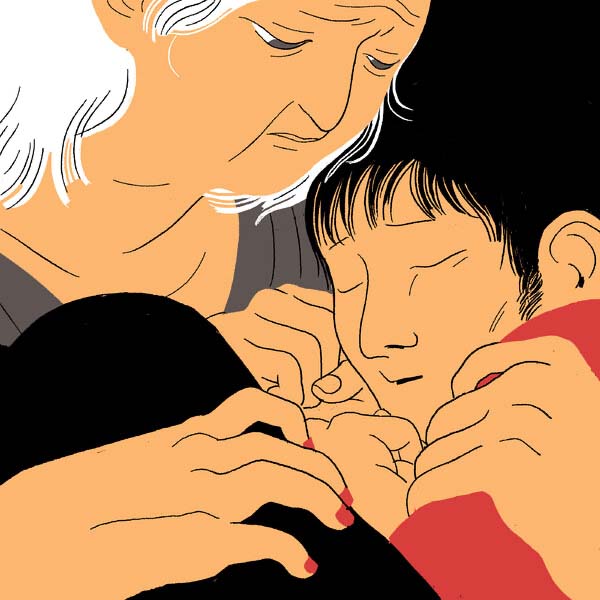By Jessica Grose, published in the New York Times on February 16, 2022
“A mother’s internalized mandate to protect her child does not end when her children are grown”
We have a mainstream directive for raising children in our society: You provide them with support, shelter and care until they’re 18, and then they’re supposed to be, more or less, self-sufficient, launched into the world as adults. This framework leaves out millions of parents whose children struggle with substance abuse or mental illness, who may be providing active care to their adult children for the rest of their lives.
A new book, “Difficult: Mothering Challenging Adult Children through Conflict and Change,” by Judith R. Smith, an associate professor at the Graduate School of Social Service at Fordham, seeks to define and explore this often painful type of parenting. An estimated 8.4 million Americans care for “an adult with an emotional or mental health issue,” according to a 2016 report from the National Alliance for Caregiving, and 45 percent of mental health caregivers are caring for an adult child.
For “Difficult,” Smith writes, she spoke to 50 mothers of adult children who were not fully independent, who had issues from severe mental illness to persistent unemployment. All of these mothers were over 60, and many were also dealing with their own declining physical and emotional health. Smith writes that half the women she spoke to were doing this with incomes under $17,000 a year for a family of two.
“My research revealed that a mother’s internalized mandate to protect her child does not end when her children are grown,” Smith writes, and she outlines the stigma and worry they feel about their children’s problems. She seeks to lessen this stigma for parents, more and more of whom will be in the same situation as her book’s subjects in the coming years, with young adults increasingly reporting mental health issues, particularly during the pandemic, and the opioid crisis continuing to take lives.
There is very little social support for these parents and their children: According to the National Alliance for Caregiving, the majority of adult caregivers have trouble getting services for their loved ones like day programs or peer support, and close to half say they struggle to find treatment for substance abuse. Just as for younger children, mothers are spackling over every gap in the system, sometimes destroying themselves in the process. Sixty-two percent of parents who are caregivers for adult children say their caregiving role has made their own health worse.
I spoke to Smith about how she chose the term “difficult adult children” to refer to this population, what can be done to help caregivers and their children in the near term and why it’s important for all parents to come to terms with their own ambivalence, because it is normal to have mixed feelings about our roles. The following conversation has been edited and condensed.
Jessica Grose: Tell me about the choice to use the term “difficult adult children,” and what it means for the mothers in your book.
Judith Smith: As I was doing my research, one friend said, “No, no, no, you can’t use that word. It’s pejorative.” But as I say in the book, this is how difficult is defined: It’s something hard to do, it’s something hard to manage, and it’s something hard to understand.
Whether the kid had a substance use issue or severe mental illness or was depressed or unemployed and not willing to look for a job, what I heard was the mothers were struggling. It was really difficult for them to figure out what to do, because they didn’t see any choice. They felt committed as mothers to hang in there, but they felt hopeless for their child and they felt hopeless for themselves. Some of them were in real physical danger, living with an adult child who had serious problems.
Jessica Grose: I was so struck by the point that you made about how for mothers of children with mental illness who are in danger, that often their only option is to call the cops. Most parents do not want to call the police on their children. You also talk about the very limited options in the United States if parents are not able to take on the work of housing and protecting their children anymore. What’s the low-hanging fruit of what we can change to help these parents in the near term? I know this is a decades-long, complicated, multipronged problem.
Judith Smith: I think the advocates for parents of adults with severe mental illness are hoping for something they call “housing that heals” — supportive housing, group homes for people with severe mental illness that also have treatment. I think housing has to be a priority. There also need to be more psychiatric beds available for when people need them in the short term.
This is a political battle within the advocacy for severe mental illness. In terms of the people who advocate for the rights of the person with mental illness, and the families who would like there to be more options for temporarily taking away the rights of the person and having them be protected and hospitalized when they are really aggressive and a danger to themselves and their families. But it’s a horrendous decision to say, “Right now, my child will have to be homeless.”
Jessica Grose: Reading about mothers in your book grappling with that decision was just awful. And I think part of why it was so awful for them is because of the blame that society tends to place on mothers. You quote the psychologist Stella Chase, who said, “There are very few jobs in which one individual will be blamed for anything that goes wrong, and fewer still in which what can go wrong, and the feeling of being blamed, is so devastating.” Can you tell me a bit more about how that ends up playing out, in terms of the guilt and shame that these mothers feel?
Judith Smith: I think we assume that women should be able to do everything, and we should be able to produce perfect kids. So I think for all parents, when our kids aren’t doing well, it affects our self-esteem. We feel bad and then we experience the conflict of ambivalence. Rozsika Parker wrote a wonderful book, “Torn in Two,” more than 20 years ago. She’s a psychoanalyst. And she really talks about how shameful it is for women to acknowledge their mixed feelings, which we all have.
If you want to take a shower and your kid won’t let you take a shower, you’re angry, but then you feel bad for being angry. And society doesn’t allow women to have mixed feelings. Parker named the conflict of ambivalence as what is keeping mothers imprisoned and so isolated and feeling so bad about themselves — but that in fact, ambivalence is a part of all relationships. That’s a lot of what we do with clients, is allow them to express negative feelings about their parents or about their spouses and be able to live with it without feeling like they’re bad people.
Jessica Grose: I’ve heard most concepts in terms of the caregiving literature, but I hadn’t heard of “chronic sorrow,” before your book, which is something these mothers experience, and which is defined as “the long-term periodic sadness the chronically ill and their caregivers experience in reaction to continual losses.” I would love to hear you talk a little bit more about chronic sorrow — the hopes these parents once had for their kids that are now gone.
Judith Smith: Each mom I talked to experienced it in a different way. One woman has a 37-year-old son who has been home since college, when he had a breakdown. He was in the Harlem Children’s Choir, had a beautiful voice. Everybody liked him in the neighborhood and none of that is there anymore.
Each person talked about what wasn’t. One mom talked about her sadness at the birth of her first grandchild. It should have been the most joyous time in her life. But it made her remember her first birth, which was her son who ended up dying by suicide at 45. She had three other living children, and she felt so bad that she was feeling sorrowful at such a wonderful moment.
But this is what it is. There is a study where they actually, with large data set, proved that you’re only as happy as your least happy child. There are a couple of books that are written about when our kids disappoint us, and the message is: “Move on, let them take care of themselves.” But they’re not talking about this population. These mothers cannot just move on.
Programming note: I’m taking some time off. I’ll be back with another newsletter on March 2.
Illustration by Eleanor Davis
















